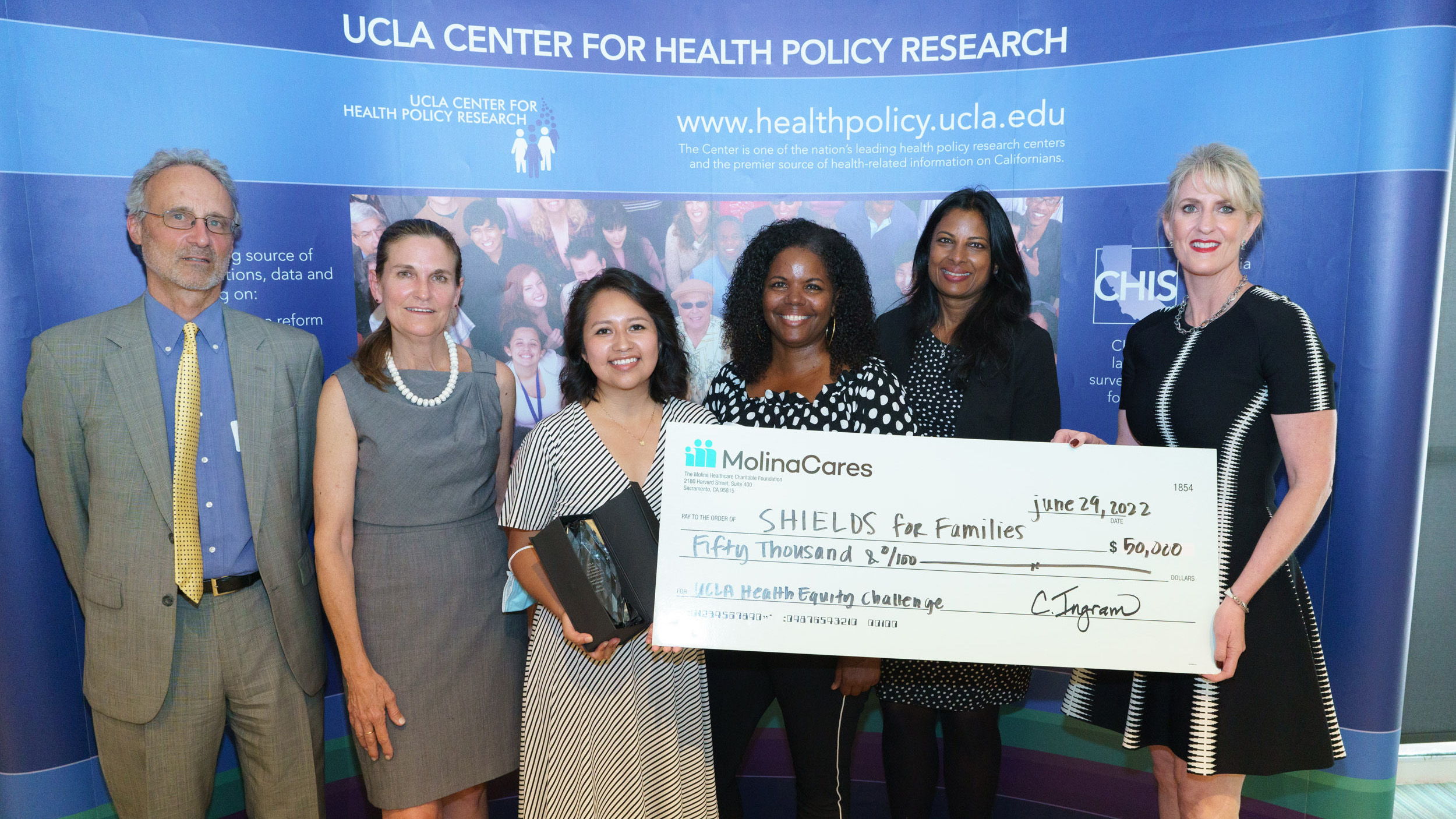
As a dual-degree MD and Master of Public Policy student, I was excited for this opportunity to combine both my fields through the Health Equity Challenge. I aspire to become an obstetrician/gynecologist and to work with vulnerable patient populations, which prompted me to center my proposal around disparities in perinatal depression. The goal of my finalized project is to establish peer support groups for mothers of color in South Los Angeles, with the organization SHIELDS for Families. These sessions will be available in English and Spanish to best address the language needs of the community.
This all stemmed from my passion for every aspect of reproductive justice, including advancing equity in maternal health outcomes. Across the country, more attention is being brought to racial disparities in maternal morbidity and mortality, which absolutely includes maternal mental health conditions like perinatal depression.
As part of my MPP, I took a course exploring the role of gender in health, which focused not just on identifying problems, but also on seeking solutions. In this course, we were required to choose a relevant topic for our midterm and final assignments; We were required to both explore the issue and to identify potential ways to address it. I had a preexisting interest in mental health. Coupled with my interest in disparate maternal health outcomes, it naturally became an opportunity to learn more about maternal mental health. I became disturbed by the severity of maternal mental health disparities, with Black mothers experiencing about twice the rate of perinatal depression as white mothers and with a much lower likelihood of receiving treatment. I learned more about the long-term effects on both mothers and their children, including the risk of self-harm as a leading cause of maternal mortality in the first year postpartum. I also researched potential solutions, including expansion of postpartum Medicaid coverage, continued education and destigmatization, and increasing accessibility to maternal mental health services.
“I became disturbed by the severity of maternal mental health disparities, with Black mothers experiencing about twice the rate of perinatal depression as white mothers and with a much lower likelihood of receiving treatment.”
With this assignment still fresh on my mind, I learned about the Health Equity Challenge. This immediately stood out as an opportunity to apply my new knowledge to a proposal with potential to improve health outcomes for our communities. I reflected on the most affected areas within Los Angeles, and decided to focus on South Los Angeles, which is a primarily Black and Latinx community that reflects these same disparate outcomes. These inequities were worsened further by the COVID-19 pandemic.
Based on my research during my gender and health course, I proposed a few ideas, including educational programming to increase recognition while normalizing perinatal depression symptoms, and a peer support program in which mothers could build community and address these symptoms together. My initial submission was somehow selected by the Health Equity Challenge committee, and I was able to continue fleshing out my ideas in partnership with SHIELDS for Families.
Looking back on this experience, I am immensely thankful for the opportunity to delve deeper into a topic affecting communities I care about, and to partner with a local organization to develop community-centered solutions. I must share a special thank you to Sonja Juniel, who worked so closely with me to discuss these ideas and shared her knowledge of the community with me. I was also very fortunate to rely on Dr. Michael Ong as my mentor, who listened to me for hours rambling about idea after idea, ensured I pursued a proposal I was truly passionate about, and guided me through every step of the grant-writing process. I am so excited to see the outcomes of this proposal (taking off at the start of 2023!), and can say that the Health Equity Challenge truly was a one-of-a-kind experience.
![16[1]](https://healthequitychallenge.com/wp-content/uploads/2023/01/161.png)
By Alma Lopez
2022 Health Equity Challenge Winner
Alma Lopez’s proposal to establish peer support groups for mothers of color in South Los Angeles, was one of the two projects funded. Her community partner, SHIELDS for Families, was awarded $50,000 to implement the project
continue reading
Related Posts
Hi, I’m Amani. I’m a third-year medical student at UCLA, a former high school science teacher, a published short story writer, and (hopefully 😊) a future neurosurgeon.
When I first saw Brea at the LA animal shelter, her white-gray checkered fur was overgrown and severely matted.
I find myself standing on a winding path, fraught with the fears and uncertainties that have long shadowed the dreams of my community.



